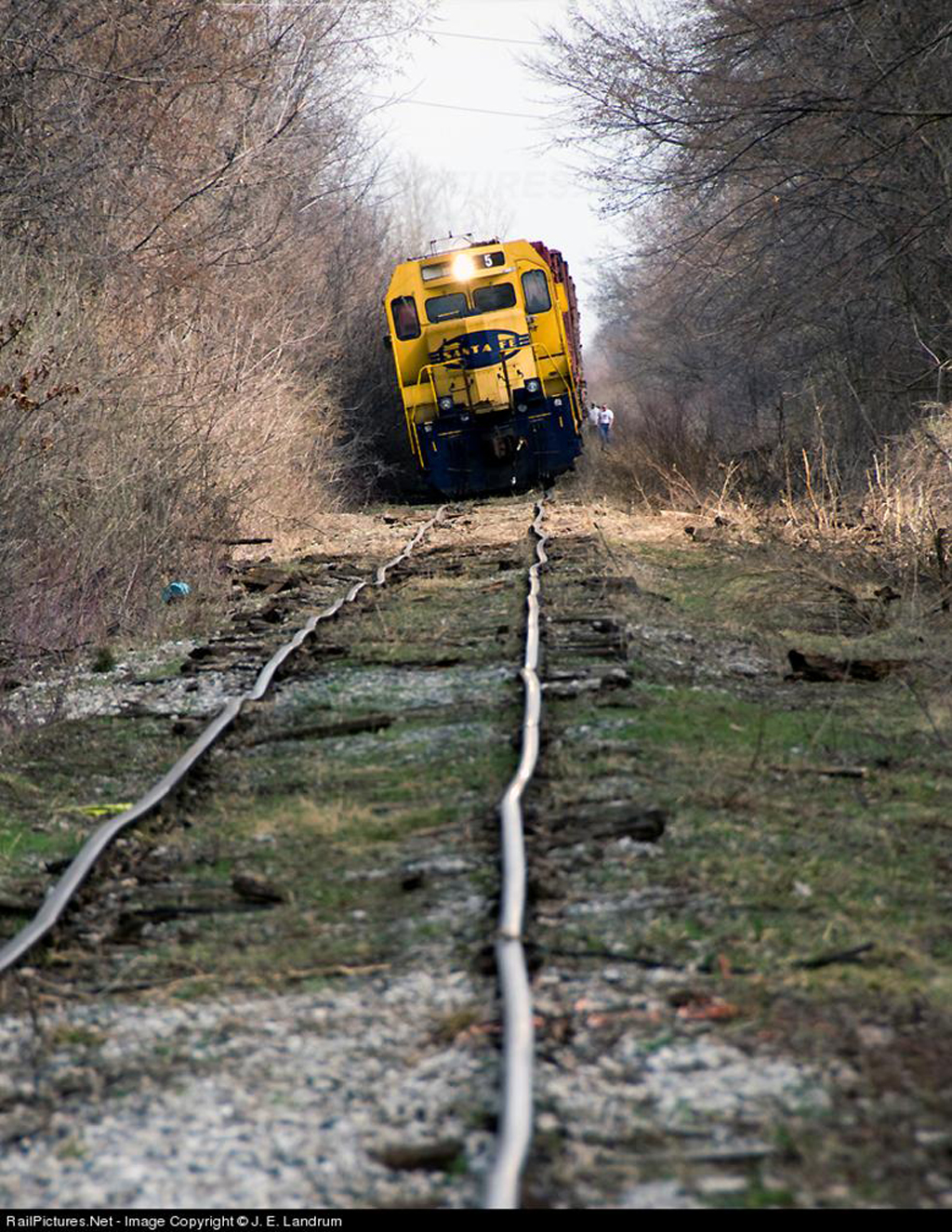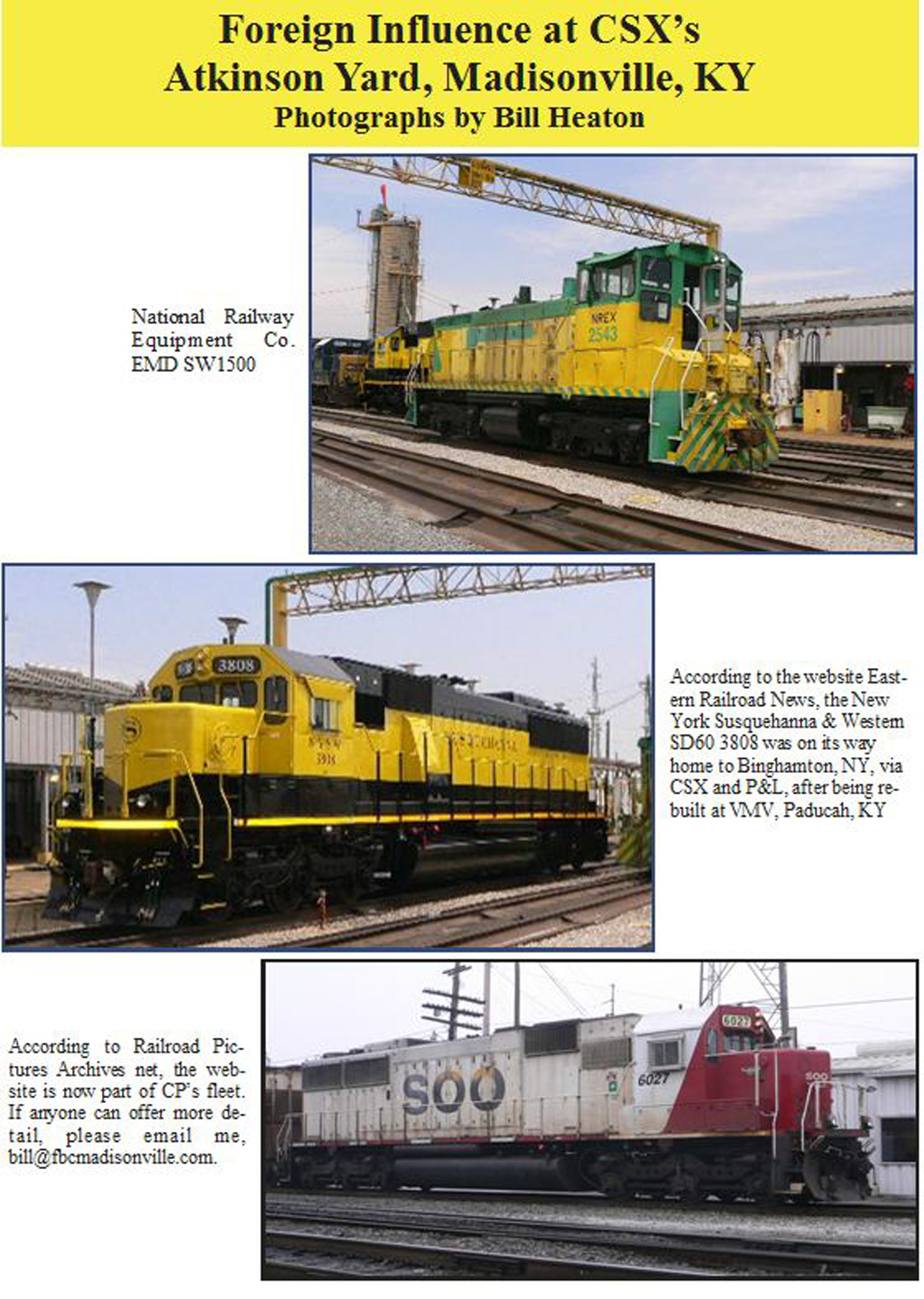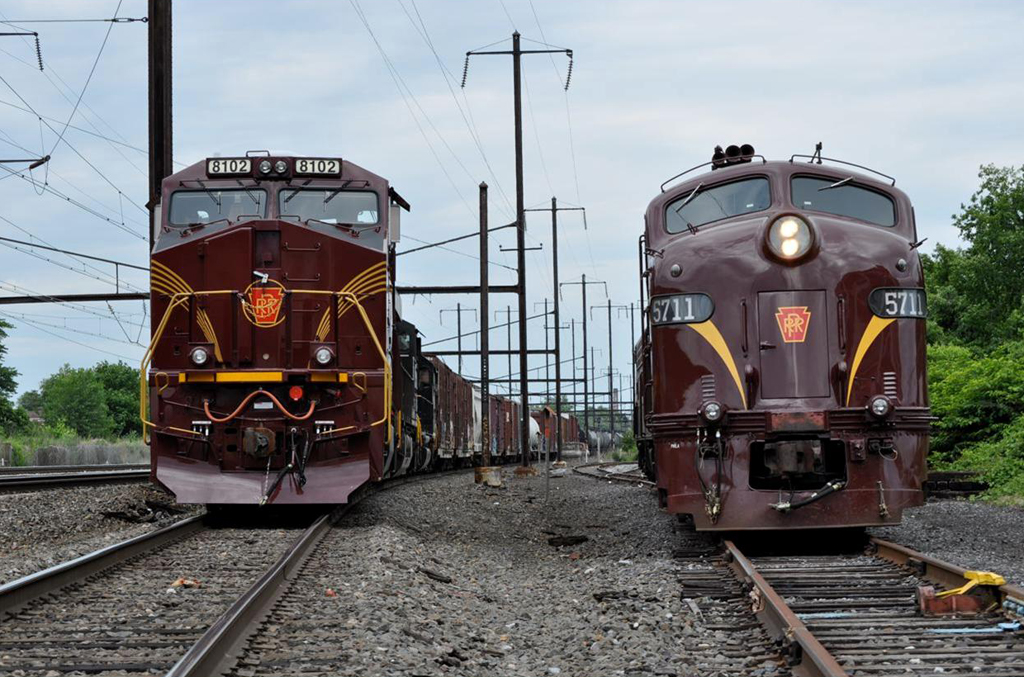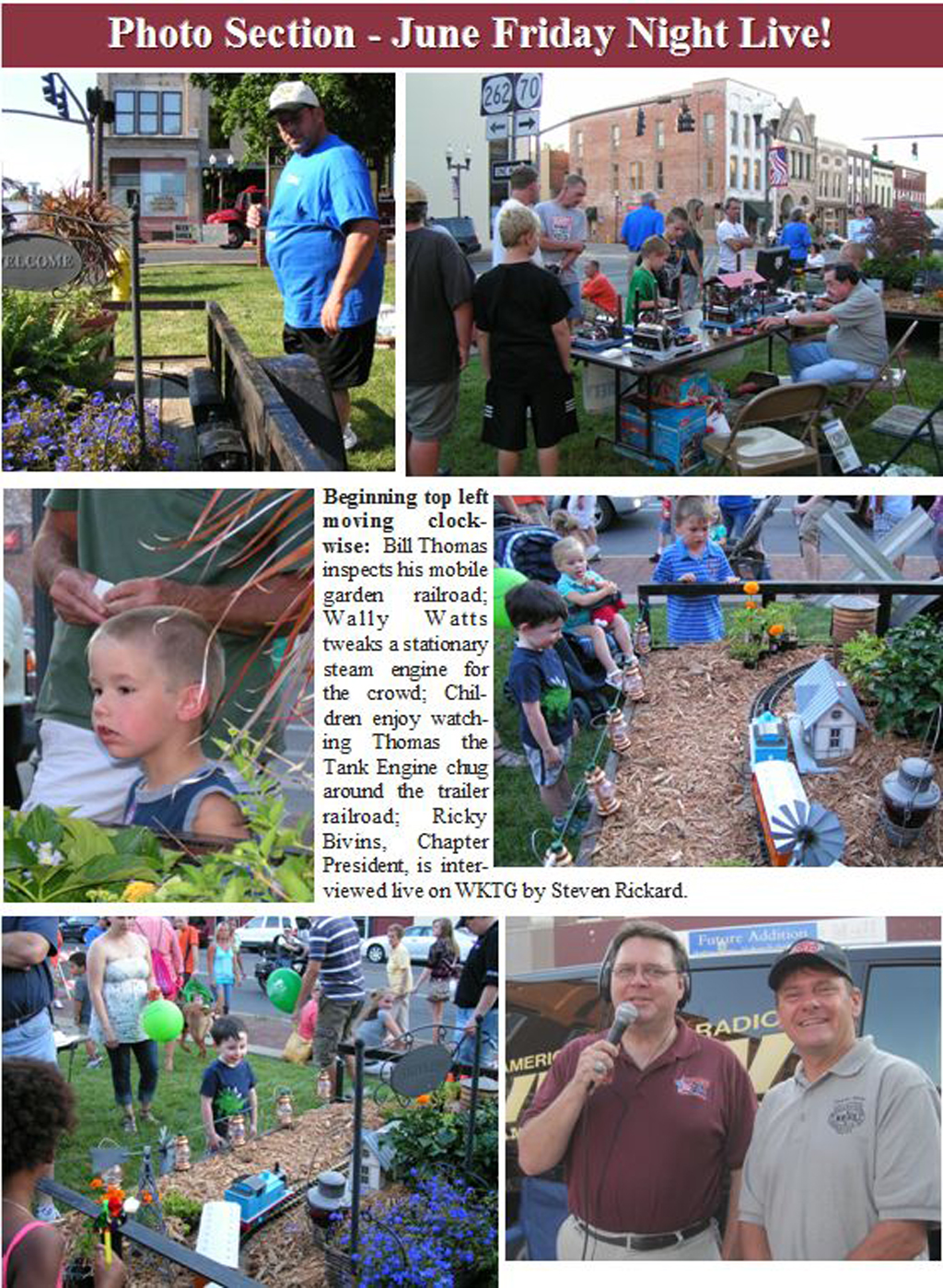by Times-Mail Staff Writer Roger Moon
Submitted by chapter member Chris Dees
Alan Barnett is retiring in July as general manager of the Indiana Railway Museum in French Lick, but he has no intention of completely separating himself from the career he has enjoyed since the 1970s.
And when Barnett talks about a future of growth for the scenic railway excursions that entertain visitors to the French Lick community, he still sees himself in the mix of people who will make that growth happen.
Although Barnett is giving up the general manager’s position when he turns 65 in July, he will remain at the station. “I will be stepping down to a position called business manager and I can devote whatever time it takes,” said the former Greensburg resident who came to French Lick in 1978 when the museum was moved to Orange County from Greensburg.
Among the museum’s staff members are Rick Olsen and Teresa Richardson. Barnett expressed complete confidence in their ability to take the museum into the future. Olsen will become the general manager. Richardson, in addition to her duties at the station, assumed duties three years ago for another role that Barnett had filled. She is the executive secretary of the French Lick West Baden Chamber of Commerce, which operates out of the museum.
Barnett didn’t want to separate himself from the museum at a time when major physical changes are planned for the facility and at a time when the philosophy behind the museum is changing.
In fact, he suggested the word “museum” doesn’t quite capture what the train rides are about these days.
“We’re basically trending over now to an operation calling itself the French Lick Scenic Railway,” Barnett said, adding that it’s a process. “We want to be able to maintain as much of the historic integrity of this equipment as we can,” Barnett said. But he said, “Most people today, they want to be entertained more than educated. You can educate me, but entertain me in the process. … I think we’re doing a better job of that. We’re beginning to offer them different venues.”
For many years, success was built on taking tourists — and locals — on a rail travel experience that went from French Lick to Cuzco. Trips were offered seasonally with the train departing the station on select days at 10 a.m., 1 p.m. and 4 p.m.
As the years progressed, the economy of French Lick and its environs began suffering as long-standing tourism success began to fade and business dropped off dramatically at the French Lick resort hotel. Barnett was among many from the Valley who lobbied tirelessly for a casino to be built as a tool for rebuilding the tourism industry. The casino was built, the community’s resort hotels were renovated and tourists indeed began returning to Orange County.
The change has brought the venues Barnett suggested had been needed. New opportunities include train excursions that link French Lick to Jasper. Also, a highly popular Polar Express, now in its third year, is available during the Christmas season.
“We’re not doing the 10, 1 and 4 (schedules) anymore,” Barnett said. “Now we’re running only 1 o’clock,” he explained. The cost of fuel and maintaining a crew dictated the change. “We’re finding for the most part the passenger count is not dropping,” Barnett said, adding that passengers have adjusted their schedules to fit the museum’s needs. About 47,000 passengers per year ride the museum’s trains.
It isn’t just the way of thinking that is changing at the museum. “We’ve got a big program going now,” Barnett said, explaining that a $3 million rehabilitation effort is planned and will include moving the museum’s shop and storage facilities to an area near the Springs Valley schools campus.
As the tourist railroad business grows in French Lick, Barnett intends to remain a part of the process. He’s simply scaling back.
“Right now, I’m walking in here every day,” Barnett said. “My plans are, after the first of July, not to walk in here every day.” But he will continue to play a role.
“I think I still have something to offer,” Barnett said. “At least I hope I do. … So I’m hoping to share the benefit of my years of experience with Rick and Teresa on a day-to-day basis.”
He added, “Genealogy is my second love and I hope to be able to spend more time working in that area. I’ve been away from it now for 10 years or more.”
Times-Mail Staff Writer Roger Moon welcomes comments at 277-7253 or roger@tmnews.com.
 On the Maumee & Western in Defiance, OH – March 15, 2012. Caught this on the Railpictures website. No, this is not unlevel. No, this is not a derailment. Yes, the right of way needs some work. Here we see a Maumee & Western Railway westbound train stopped briefly to make certain they do not have any cars on the ground. Luckily it was a “false alarm” in the words of a crewman. The train was amazingly able to continue west to the yard and CSX interchange at Defiance, Ohio. The locomotive is M&W affiliate road Connersville & New Castle #5, a former Santa Fe GP7 rebuild. The railroad is a former Wabash line from Toledo, Ohio to Woodburn, Indiana. – Submitted by Chris Dees
On the Maumee & Western in Defiance, OH – March 15, 2012. Caught this on the Railpictures website. No, this is not unlevel. No, this is not a derailment. Yes, the right of way needs some work. Here we see a Maumee & Western Railway westbound train stopped briefly to make certain they do not have any cars on the ground. Luckily it was a “false alarm” in the words of a crewman. The train was amazingly able to continue west to the yard and CSX interchange at Defiance, Ohio. The locomotive is M&W affiliate road Connersville & New Castle #5, a former Santa Fe GP7 rebuild. The railroad is a former Wabash line from Toledo, Ohio to Woodburn, Indiana. – Submitted by Chris Dees



